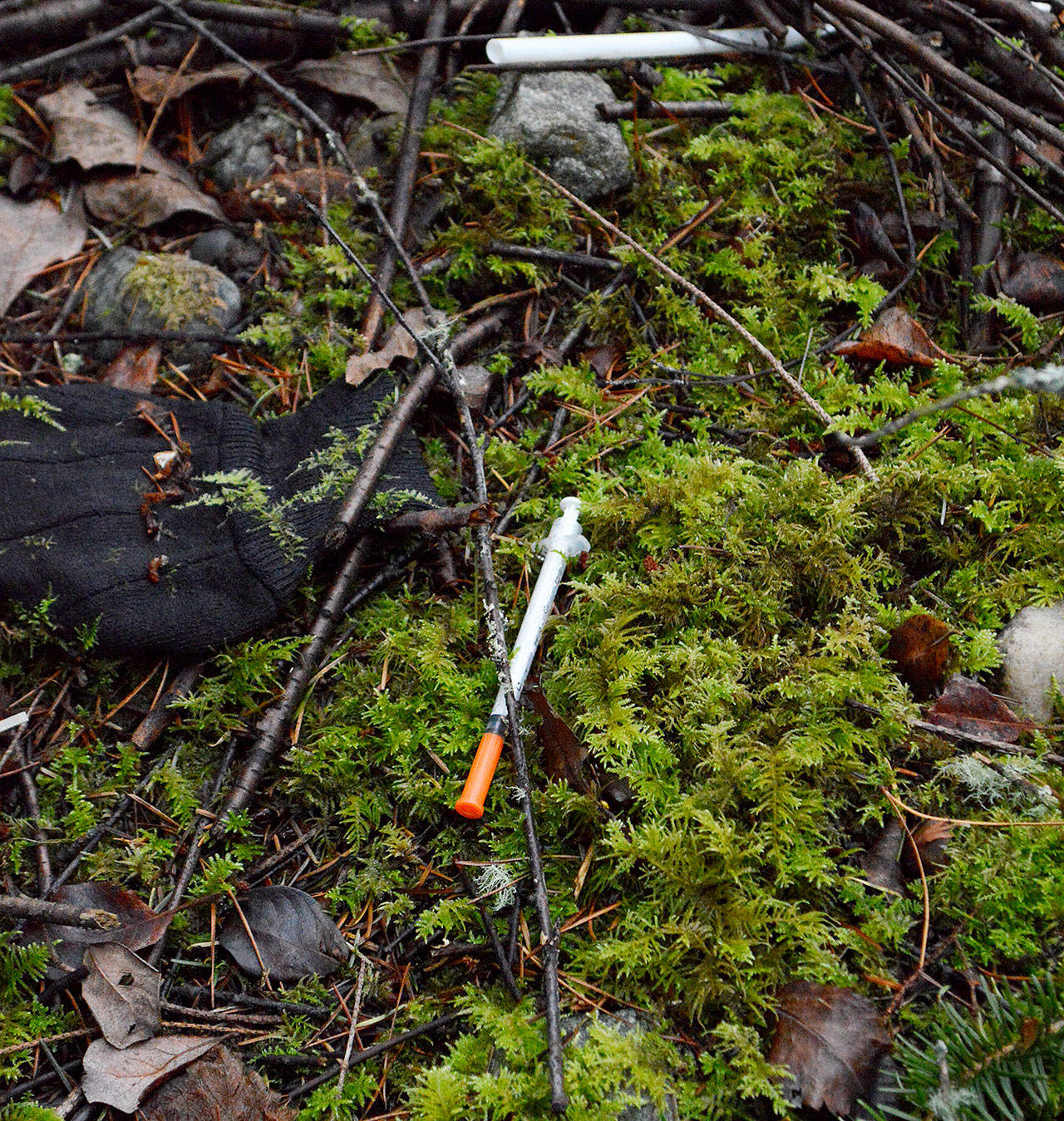If the county needle exchange program didn’t exist, there could have been more than 42,000 more used needles scattered about the community last year, and it’s likely most of them wouldn’t have been disposed of properly.
But there’s a lot more to it than exchanging needles, according to Colleen Keefe, communicable disease coordinator. She has run Island County Public Health’s needle exchange and harm reduction program since it restarted in 2017.
“It’s all about recovery,” she said.
Keefe and members of the opioid outreach program, which is separate but began at the same time and has similar goals, met with Island County commissioners last week to talk about recent outcomes and statistics.
The idea of programs such as these, which exist across public health systems in the U.S. and other countries, is to reduce the spread of diseases such as HIV and hepatitis C and prevent abscesses from infections of needle injection sites. Prevalence of hepatitis C in particular has spiked in concurrence with the opioid epidemic, Keefe said.
However, the primary goal is to get as many people into treatment successfully as possible, she said.
In her work on South Whidbey and in Oak Harbor, Keefe said she saw 285 individuals last year. Every one of them was an Island County resident, she said. When new people enter the program, she performs an intake process to gather information about their lives and circumstances.
“This is not a group of people that are coming here to Island County for this,” Keefe said.
There are needle-exchange programs in every county in the state, and she said most of the other programs are much larger with more resources than she has. Many of the individuals who used the program were employed and had particularly strong family roots to the region, which she said was one of the most eye-opening things she learned.
To help establish a relationship, she limits the number of needles she provides each time to ensure the people have to return regularly.
Keefe said she wants to build trust among the people who use the program so they will feel comfortable enough to let her guide them toward help. In 2018, she confirmed, 22 people received assessments from chemical dependency clinics in the region, 14 received detox, six underwent successful inpatient treatment and 24 clients started medication-assisted treatment.
The access to medication-assisted treatment will dramatically improve now that the first clinic on the island to offer it opened in Oak Harbor, she said.
The program also keeps people from going through a “revolving door” of emergency room visits with abscesses and other health problems before they are ready to begin treatment. Keefe said it’s a good sign that her offices received a lot more needles than it gave out last year.
“If anything, I see it as helping the community at large,” she said. “Because you’re not finding syringes around.”
She provides information about the importance of not sharing needles and safe disposal before giving them out, and she said the syringes are usually returned to her in safe containers. As word spreads about people finding help through the program, she hopes more people will feel comfortable using it.
Keefe puts her own money into creating a comfortable atmosphere for the people who visit her. She buys hand warmers, water, bagels and Chapstick. She wants people to sit and talk with her, because that’s how she can ultimately get them to treatment, she said.
She’s also cognizant of the stigma around substance abuse disorder, and she’s very deliberate with the language she uses with her clients.
“They’re people,” she said. “Do they have an illness? Yes …. I want to treat them respectfully. They deserve that.”
To learn about or use the program, contact Colleen Keefe at 360-221-6626



